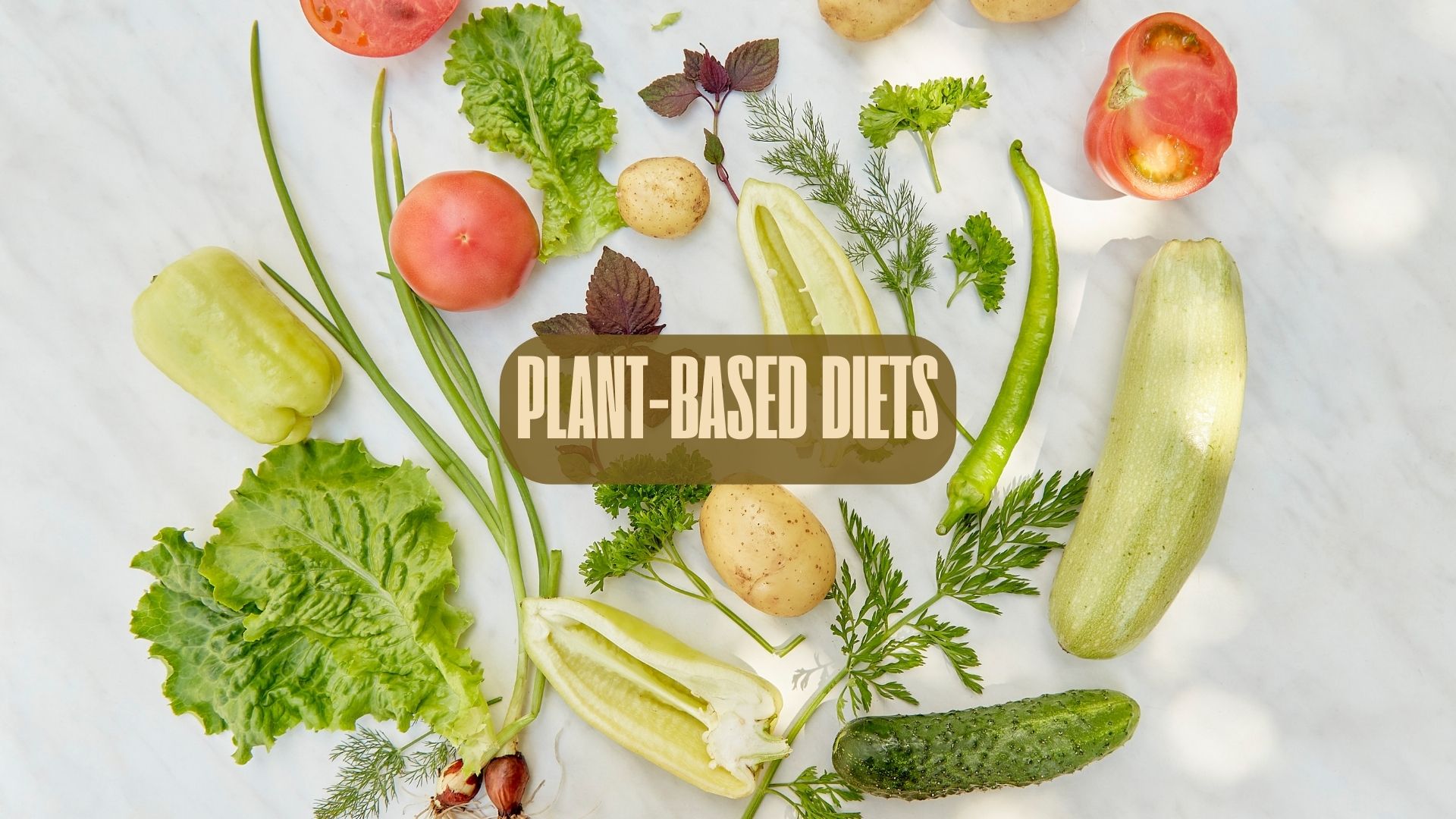OUTLINE
A plant-based diet is becoming increasingly popular due to its many health advantages and positive effects on the environment. This dietary approach emphasizes the consumption of whole plant foods, such as fruits, vegetables, legumes, nuts, seeds, and grains, while reducing or cutting out animal products. Research links plant-based diets to better digestion, enhanced heart health, effective weight control, and sustainability. In this article, we will explore the benefits of a plant-based diet and share useful tips for making this lifestyle shift.
Health Advantages of a Plant-Based Diet
1. Enhanced Digestion and Gut Health
A plant-based diet is abundant in dietary fiber, which is crucial for a well-functioning digestive system. Most plant-based foods, especially fruits, vegetables, legumes, and whole grains, contain high levels of fiber. Fiber aids in regulating bowel movements, helping to prevent constipation and encouraging regularity.
- Support for Gut Microbiome: Fiber also serves as a prebiotic, nourishing the beneficial bacteria in your gut. A varied and healthy gut microbiome contributes to improved digestion, enhanced immune response, and reduced inflammation.
- Decreased Digestive Disorders: Research indicates that plant-based diets can lower the risk of common digestive issues, such as irritable bowel syndrome (IBS) and diverticular disease, by fostering a healthy gut environment.
2. Cardiovascular Health

One of the most notable advantages of a plant-based diet is its beneficial effects on heart health. A wealth of studies demonstrate that individuals who consume larger amounts of plant foods and fewer animal products have a lower risk of heart disease, hypertension, and stroke.
- Reduced Cholesterol Levels: Saturated fats, typically found in animal products like red meat and full-fat dairy, are known to elevate levels of LDL (bad) cholesterol, a significant risk factor for heart disease. In contrast, plant-based diets are naturally low in saturated fat and high in unsaturated fats, which can help decrease cholesterol levels.
- Better Blood Pressure: Hypertension is another major contributor to heart disease. Plant-based diets are rich in potassium from fruits and vegetables, which aids in lowering blood pressure by relaxing blood vessels and balancing sodium levels in the body.
- Anti-inflammatory Properties: Plant-based foods are rich in antioxidants and phytochemicals that help reduce inflammation in the body. Chronic inflammation plays a key role in the development of heart disease and other long-term health issues. By mitigating inflammation, a plant-based diet promotes overall cardiovascular well-being.
3. Weight Control
Many individuals pursue plant-based diets for weight management, and this is well-founded. Plant-based diets are typically lower in calories and higher in fiber, aiding in weight loss or the maintenance of a healthy weight over time.
- Reduced Caloric Density: Whole plant foods usually contain fewer calories compared to animal products. This allows you to enjoy larger quantities without consuming excessive calories, which can help with weight loss while still feeling full.
- Increased Feelings of Fullness: Fiber-rich foods, such as vegetables, legumes, and whole grains, take longer to digest, promoting a sensation of fullness and helping to lower overall calorie intake. This helps regulate appetite and avoid overeating.
- More Effective Weight Maintenance: Research shows that individuals following plant-based diets typically have lower body mass indexes (BMI) and reduced rates of obesity compared to those whose diets are high in animal products.
4. Decreased Risk of Chronic Illness
Adopting a plant-based diet is associated with a reduced likelihood of developing chronic illnesses, including type 2 diabetes, cancer, and certain autoimmune disorders.

- Type 2 Diabetes: Plant-based eating can assist in managing and preventing type 2 diabetes by enhancing insulin sensitivity and stabilizing blood sugar levels. Fiber, in particular, helps slow the rate at which sugar is taken up into the bloodstream, avoiding spikes in blood glucose levels.
- Cancer Prevention: A diet abundant in fruits, vegetables, and whole grains is connected to a lower risk of specific cancers, particularly colorectal cancer. The antioxidants and phytochemicals found in plant foods aid in neutralizing free radicals and safeguarding cells from DNA damage, which can result in cancer.
- Autoimmune Conditions: Studies indicate that plant-based diets may alleviate symptoms of certain autoimmune disorders, such as rheumatoid arthritis, by reducing inflammation and enhancing immune response.
5. Environmentally Friendly and Sustainable
Beyond the health advantages, a plant-based diet is considerably more sustainable for the environment. The cultivation of plant foods demands far fewer resources, such as water and land, compared to animal farming.
- Reduced Carbon Emissions: Plant-based diets help lower greenhouse gas emissions by diminishing the demand for livestock, a significant contributor to climate change. Transitioning to a plant-based diet can reduce your individual carbon footprint.
- Conservation of Resources: Animal farming consumes large quantities of water and land. By opting for plant-based foods, you contribute to the conservation of these vital resources. For instance, to produce 1 kilogram of beef requires around 15,000 liters of water, while only 1,500 liters is needed for 1 kilogram of wheat.
- Minimized Deforestation and Habitat Destruction: The expansion of livestock production often results in deforestation, which destroys natural ecosystems and endangers biodiversity. A plant-based diet helps lessen the necessity for clearing forests for grazing land.
Suggestions for Shifting to a Plant-Based Diet
Transitioning to a plant-based diet may seem overwhelming at first, but it doesn’t have to involve an all-or-nothing mindset. Here are some suggestions to help you make a smooth transition:

1. Begin Gradually
If you’re new to plant-based eating, start by adding more plant foods to your existing meals instead of cutting out animal products entirely from the start. Consider “Meatless Mondays” or select plant-based alternatives for one meal each day. This slow method enables your palate and digestive tract to adjust.
2. Emphasize Whole, Unprocessed Foods
The cornerstone of a nutritious plant-based diet is to prioritize whole, unprocessed foods instead of depending on processed alternatives. Center your meals on vegetables, fruits, whole grains, legumes, nuts, and seeds.
3. Discover New Recipes
Trying out new plant-based recipes can make the transition more enjoyable and fun. Experiment with new grains such as quinoa or farro, explore various cooking methods, and use herbs and spices to enhance flavor. Cooking at home gives you control over the ingredients and the opportunity to try out new plant-based meals.
4. Ensure Sufficient Protein Intake
A common worry about plant-based diets is adequate protein intake. Fortunately, there are numerous plant-based sources of protein, including beans, lentils, tofu, tempeh, quinoa, and nuts. Combining different protein sources guarantees you receive all the essential amino acids your body requires.
5. Maintain a Balanced Approach
It’s crucial to ensure your plant-based diet is well-rounded and encompasses all essential nutrients. Pay attention to the intake of nutrients such as Vitamin B12, iron, calcium, and Omega-3 fatty acids, which may need supplementation or careful planning.
Conclusion
The advantages of adopting a plant-based diet are evident: better digestion, improved cardiovascular health, effective weight control, a lower likelihood of chronic illnesses, and a positive effect on the environment. By making the switch to a plant-based lifestyle, you not only enhance your own well-being but also aid in creating a more sustainable future for the Earth. Whether you opt for a fully plant-based diet or simply boost the intake of plant foods, the benefits are clear. With careful planning and gradual adjustments, anyone can reap the benefits of a plant-based diet.

























